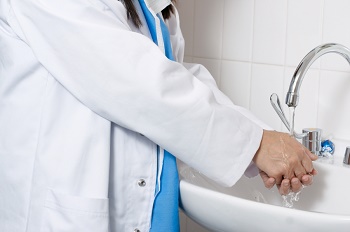Did Your Hospital Stay Make You Sick?
One in ten patients admitted into a hospital will acquire a preventable infection from the hospital.
 According to the Center for Disease Control and Prevention, as many as 2 million people suffer from healthcare-associated infections (HAI) every year, and on average, 90,000 deaths result from healthcare-associated infections each year. In some cases, HAIs happen because standards of hygiene are not strictly followed. When an HAI is a result of medical negligence, the patient may seek compensation for the extended hospital stay, pain and suffering, a longer recovery period, and any additional treatments they may need.
According to the Center for Disease Control and Prevention, as many as 2 million people suffer from healthcare-associated infections (HAI) every year, and on average, 90,000 deaths result from healthcare-associated infections each year. In some cases, HAIs happen because standards of hygiene are not strictly followed. When an HAI is a result of medical negligence, the patient may seek compensation for the extended hospital stay, pain and suffering, a longer recovery period, and any additional treatments they may need.
What Are Healthcare-Associated Infections?
An infection is any disease that is caused by microbes such as viruses, bacteria, and fungi that may enter the body through an existing wound or incision. Every hospital houses a large sick population that is a carrier of various infections, and many HAIs spread through this population. Some more common infections are those caused by Vancomycin-resistant Enterococci (VRE) , Methicillin-resistant Staphylococcus aureus (MRSA) and Clostridium difficile (C. Diff.) These infections can be drug resistant and deadly.
How Can A Patient Catch an HAI?
HAIs can be transferred from the caregiver to the patient or from the environment to the patient. Healthcare providers must carefully follow standard hygiene practices to prevent the spread of HAIs to their patients. This includes regular hand washing and the use of new gloves before touching each patient. However, studies reveal that doctors fail to adhere to these standard hygiene practices 52 percent of the time.
Other causes of HAIs include unhygienic implants and tools, incorrect use of intravenous equipment, improper care of surgical sites, and improper use of medical equipment such as catheters and ventilators. It is critical that the patient’s bathroom and room, linen, utensils, food trays, and other surfaces be thoroughly sterilized at regular intervals.
Will Patient Screening Be Of Any Help?
In 2004, 27 states in the United States mandated the disclosure of infection rates by hospitals. Of these states, 9 have enforced laws that require hospitals to screen all incoming patients for certain infections, such as MRSA. In a study published in 2013, it was revealed that an extremely effective way of countering HAIs, including MRSA, is the use of a protocol known as universal colonization. According to the study, simple practices such as swabbing the nose of ICU patients with anti-bacterial ointment and bathing the patient twice daily with antiseptic wipes may reduce the chance of infection by about 40 percent.
The regulations related to healthcare-associated infections are extremely complex and rapidly evolving. If you or a loved one has experienced complications because of a healthcare-associated infection, contact Zevan and Davidson Law Firm at (314) 588-7200 for an evaluation of your case.
[maxbutton id=”1″]
Missouri Medical Malpractice Lawyer
If you have suffered as a result of medical malpractice, contact our legal team right away. Waiting to seek legal representation can prevent you from filing a claim and receiving the compensation you deserve.
Contact Zevan Murphy today.
